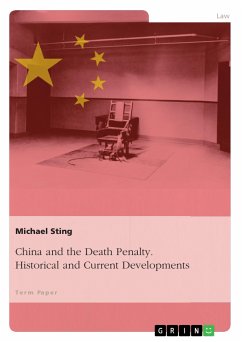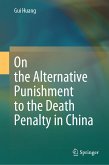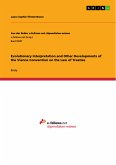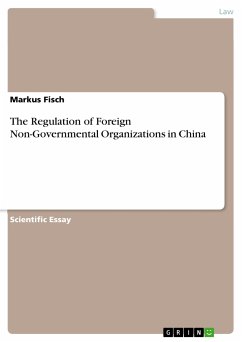Seminar paper from the year 2015 in the subject Law - Comparative Legal Systems, Comparative Law, University of Cologne (Institute of East Asian Studies Seminar / Modern China Studies), course: The political System of VR China, language: English, abstract: “Kill fewer, kill carefully.” According to the wishes of the Chinese Politburo, these two political guidelines are to be implemented in the future in order to simultaneously maintain harmony and order in China. As with any passed laws – independent of country or government –, two questions arise here: 1. What did the prior evolution look like and can obligatory reform prevail? 2. Which competences are the judiciary’s responsibility and is there a guarantee that secure monitoring of law enforcement will be carried out? I will pursue these questions in this paper. For this purpose, I will start by addressing the term “death penalty”, the legal provisions in China as well as its evolution with a particular focus on the “Strike Hard” Campaign and the decentralization process of the courts, which substantially contributed to the need for reform. Furthermore, I will analyze the reformation of the Supreme People’s Court and assess the current state of the political guidelines being strived for and their actual executive implementation. The conclusion should allow for an assessment of the reformation measures, if they have indeed been successful, if there is a need to catch up or if they failed entirely.
Bitte wählen Sie Ihr Anliegen aus.
Rechnungen
Retourenschein anfordern
Bestellstatus
Storno









